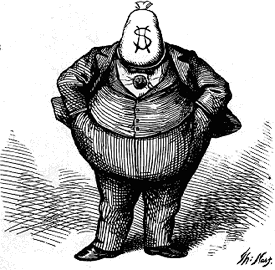|
|
This lack of overt, heavy security made the Capitol and its offices feel like they truly belonged to the people, but over the years, things tightened up, especially after the July 1998 shooting incident that took the lives of two Capitol policemen.
First came the metal detectors and x-rays; then, following September 11, your basic, total lockdown. Shortly after 9/11, I remember sitting on the Metroliner in Washington's Union Station, waiting to head home to New York. I looked out on the platform. Suddenly, it was swarming with guys in gasmasks and HAZMAT suits. We were only a few blocks from the Capitol and anthrax had just been found in the office of then-Senate Majority Leader Tom Daschle.

Now, unless you're there on business, you can only visit the Capitol on a guarded, guided tour. Pockets have to be emptied out when visiting any government building, even the National Archives and the Smithsonian. And concrete barriers and blocked off DC streets make it virtually impossible anymore to travel in a straight line from Official Point A to Official Point B.
Monday morning, however, you could walk a straight line from the front door of the Supreme Court to the east side of the Capitol, literally and metaphorically. Monday's decision by the highest judiciary in the land to strike down Vermont's campaign finance law is directly relevant to our Federal legislative body's inability to deal with measures that would help the majority of the people to whom the Capitol -- hell, the entire government -- is supposed to belong.
In what both the Washington Post and New York Times described as a "splintered" 6-3 decision (six separate opinions accompanied it), the court overruled the 1997 Vermont law -- the strictest in the country. The Post reported, "Although the court said the government retains the power to restrict contributions, for the first time it declared specific limits to be too low -- perhaps opening the way to challenges on some long-standing restrictions, such as the 30-year-old $5,000 contribution limit for political action committees."
The Vermont legislature passed its bill as an intentional challenge to the Court's 1976 Buckley v. Valeo decision which, as the Post's Charles Lane wrote, "has generally been read to permit limits on campaign contributions, for the purpose of stopping corruption or apparent corruption -- and to bar limits on candidates' spending as a violation of free speech."
While it's true that the Vermont law may have set the bar far too low -- even the cost of a box of Krispy Kremes for a campaign kaffeeklatsch could be applied against an individual's $200 contribution limit in a local state house race -- the need for further campaign finance reform remains. In the words of Common Cause President Chellie Pingree, "This court is out of step with the vast majority of Americans who want to take back their democracy from wealthy special interests and strongly support spending limits."
That's why Common Cause and so many others favor public financing of all state and federal campaigns. As Pingree noted, "Given the Abramoff and other recent scandals out of Washington, and Congress' refusal to address its lax ethics system, public financing is a way for the public to get its concerns back at the top of the national agenda, where they should be."
In support of Common Cause's argument, let's introduce into evidence Monday's Washington Post story headlined, "Call for Lobbying Changes Is a Fading Cry." Those vocal demands for reform that accompanied Tom DeLay's resignation in the spring have vanished in those lazy, hazy, crazy days of summer.
The Post reports, "Legislators and public-interest group advocates say the most likely result this year is a minimalist package that would allow members to say they have responded to the Abramoff situation and other scandals but would do little to crimp their ability to accept lobbyist favors. The change, these people say, reflects a calculation that the political storm has mostly passed and that the need for more intrusive efforts to alter the congressional culture and the lobbyist-lawmaker relationship is less urgent."
So the big money lobbyists get to continue to wine, dine and bribe with few if any new constraints. And you wonder why it's so hard to get a minimum wage increase through Congress. Or to legislate restraints on government waste, compounded by corruption in the dealing out of contracts. Or to pass environmental restrictions on industries slowly choking and parboiling us to death.
But the problem isn't just greed, lobbyists and the need for the public financing of campaigns. Alas, it's also our own continuing, goddamned indifference.
Speaking of the need for wider reform, John McCain told the Post, "The reason why it didn't happen was that members didn't feel a sufficient amount of pressure to change the way they do business... There's a belief among my colleagues that our constituents are not concerned."
After the 1998 deaths at the Capitol, President Clinton and several congressional leaders went to great lengths to condemn the despicable violation of what they called "the people's house." We do it a further desecration with our apathy. We've let vandals enter the people's house. The damage they cause is as much our fault as theirs. If we don't demand and support a floor to ceiling cleanup -- indeed, a thoroughgoing, gut rehabilitation -- we don't deserve to call that house democracy's home.
© 2006 Messenger Post Newspapers
Michael Winship, Writers Guild of America Award winner and former writer with Bill Moyers, writes for the Messenger Post Newspapers in upstate New York
Comments? Send a letter to the editor.Albion Monitor
June 29, 2006 (http://www.albionmonitor.com)All Rights Reserved. Contact rights@monitor.net for permission to use in any format. |
|









